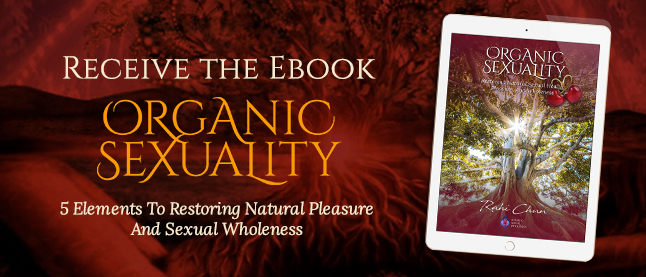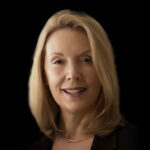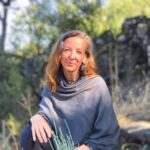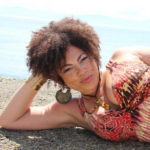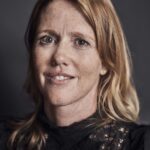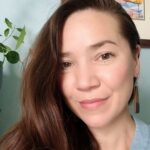
How to Ensure Optimal Sexual Health Through Menopause and Andropause with Dr. Guy Citrin
Share this episode:
In addition to resolving my 83-year old Mother’s life-long gut health issues within 6 months, I know Dr. Guy as the Naturopathic Wizard who balanced my hormones as I was moving through andropause and quite frankly, made my body feel and respond like a teen-ager in the bedroom. He has supported a number of my friends and clients with similar results, and I’m thrilled to have him here to discuss one of his several specialties that feels criminally under-researched and absent from our cultural conversations – hormonal health
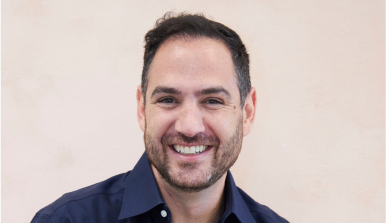
Dr. Guy Citrin’s site: CitrinWellness.com
Dr. Guy Citrin combines innovative integrative modalities with functional, naturopathic, and conventional medicine for the best possible results.
He specializes in gut health, hormones, and regenerative medicine. However, he has a broad background and expertise in primary care and treats many conditions and attempts to help the body heal naturally and therefore, take people off medication when it is safe to do so.
Dr. Guy received his naturopathic medical degree from the National University of Health Sciences and was a resident at a renowned affiliate site through Bastyr University .
Dr. Guy is a member of the Endocrinology Association of Naturopathic Physicians, the California Naturopathic Doctors Association, and a nationally recognized speaker on gut health for Microbiome Labs.
We explore:
How gut and hormone health are the two fundamental systems to ensure balance for feeling amazing and healthy in the body.
How “nobody needs to suffer hormonally” yet how 90-95% of people with hormonal imbalance – needlessly suffer.
How with 50 million people in the US entering menopause, the next big boom in health care will be hormonal health.
How PMS is believed to be normal for women who bleed, but it is a symptom of an issue that can treated hormonally.
How when the gonadal system is hypoactive – not very strong and producing less testosterone, it can affect not only one’s libido and erections, but lead to low energy, brain fog, and sleep irregularities – and how this is occurring in younger men 25-40, when a generation ago, it was more typical after 50.
How progesterone is an anti-anxiety producing chemical, and when this drops during peri-menopause, it can cause irritability, sleep deprivation, greater anxiety, lower libido and lead to inconsistent periods due to hormonal disruption.
How hormones should be checked and balanced not just as one is approaching peri-menopause, but throughout one’s life to honor one’s vibrancy, healthy sex drive, healthy sleep & metabolism.
How the NIH study 20 years ago claiming a link between taking hormones and the onset of cancer has been debunked.
Rahi: Welcome to Organic Sexuality, where we explore the restoration of pleasure, the reclamation of sexual sovereignty, and the realization of our embodied sexual nature. An invitation to honor the pleasures of your body by embodying the pleasures of your nature. I'm your host, Rahi Chun. I'm a certified somatic sex educator, a sexological bodyworker and creator of somatic sexual wholeness. Just as every human being experiences puberty, every human being will also experience either menopause or andropause. Understanding how hormonal changes can affect your body from brain fog, sleep, and energy levels to sexual health in the form of vaginal lubrication, libido and sex drive and healthy erections is vital to our sexual wholeness. And yet there is still very little research and mainstream discussion about these universal experiences. So I'm delighted to have Dr. Guy Citrin whose specialties include hormonal health, help us understand what changes can occur, how to prepare for them, and ultimately how to restore and enjoy a magnificent embodied aliveness. Through it all,
Rahi: I am really, really excited to have Dr. Guy Citrine join us today. I've been wanting to have Dr. Guy join us for quite some time. Um, I will read his bio. Um, Dr. Guy Citrinne combines innovative integrative modalities with functional naturopathic and conventional medicine for the best results. He specializes in gut health hormones and regenerative medicine. However, he has a broad, broad background and expertise in primary care and treats many conditions and attempts to help the body he'll naturally and therefore take people off medication when it is safe to do so. Dr. Guy received his naturopathic medical degree from the National University of Health Sciences and was a resident at a renowned affiliate site through Bester University. Uh, he's a member of the Endocrinology Association of Naturopathic Physicians, the California Naturopathic Doctor's Association, and a nationally recognized speaker on gut health for Microbiome Labs. Now, personally, I can say in addition to resolving my 83-year-old mother's lifelong gut health issues, within about six months, I know Dr. Guy as the wizard who balanced my hormones as I was moving through andropause, and quite frankly, made my body feel and respond like a teenager in the bedroom. He has supported a number of my clients with similar results, and I'm so thrilled to have him here to discuss one of his many specialties hormone health. How you doing today, Dr. Guy?
Guy: Good. Thank you so much for having me.
Rahi: Oh, man. It's great to have you. So glad, so glad. So, you know, I thought as a jumping off point, I wanted to ask you, um, what led you to choosing naturopathic medicine as your area of study and specializing in the areas of expertise that, that you've developed and cultivated?
Guy: Uh, yeah. I mean, it's been a, it is been a long road. I, um, it's, it started with kind of a bit of a tragic story. My best friend passed away from cancer at 19, and at her, she was working with a holistic health practitioner. This, a chiropractor who is doing something called the Lifeline Technique, which is uses applied kinesiology and all sorts of stuff. And, um, it was, it was, uh, he was, his name is Darren Weissman. He's a pretty famous functional, uh, Cairo. And so he started treating her. And I never met the guy. And at her, like, as I'm making her eulogy, I'm like, Darren, thank you so much. Whoever you are in this crowd, thank you so much for all of the work. 'cause I really saw transformations, although, you know, Dorothy was her name. She never, she never survived, unfortunately. Mm-Hmm.
Rahi: Oh, wow. And
Guy: I'm like, for what?
Guy: Um, they do, they launched their first spore probiotic called MegaSpore. So things worked out really funny. Anyway, I started training with these guys, and I, and I fell in love with holistic medicine because I just saw they changed my life. Amazing. So at 19 years old, they transformed everything. Like all my emotional health, my physical health, everything changed. And I kind of saw the power of natural medicine. Wow. Um, and that, and it took me a long time. Like, I, I, I didn't know which course, I didn't want to be a chiropractor. I knew that, um, I didn't know much about naturopathic medicine. I didn't know much about acupuncture. My whole family's lines of conventional MDs. Oh, wow. I'm pretty sure I be an md, but I, but I didn't know. So I started to play around. And ultimately, um, at 29, I just decided to try both chiropractic and acupuncture just to see.
Rahi: Oh.
Guy: So I studied those for about three years. Wow. And so, I'm, I'm actually very close to, like, I'm halfway through my master's in acupuncture, and I'm three quarters of my way through chiropractic. But then at that time, I just, I didn't fall in love with those modalities. For me. They're amazing modalities. I just, I didn't wanna practice them. And I went to this naturopathic convention 'cause I was kind of involved already in holistic medicine. I was pretty far along Mm-Hmm. And I fell in love. I fell in love with what the naturopaths were saying. I see. Um, everything I wanted to do personally. I really was like, this is a, an amazing group of people who are dedicated to true healthcare. And yeah. I kind of fell in love. Yeah. And I switched career paths at that point and became a naturopath.
Rahi: Wow. Wow. That's amazing. That, that's incredible that these two men, I mean, you know, came into your life at that young age and really took you under their wing. Really? Yeah. I mean, what an incredible education and just personal experience. That's just amazing. Um, yeah.
Guy: Yeah. So there was a, there was a lot of mentors in my life that came in a very specific times for a few years that radically transformed my life. And I kept having that come into my life, uh, kind of until recently. And now actually I'm starting a new thing with, with another mentor. So like, I, I see, I seem to have cultivated an ability to have mentorship. Yeah. You're
Rahi: Magnetizing them.
Guy: Yeah.
Rahi: They're coming. They're just like, they're just drawing them like crazy, man. They're just like being drawn to you. It's great. It's great. Well, so, so I get that you were drawn and really attracted to naturopathic medicine, to the community, the functionality, like everything you were learning about it. I'm curious amongst your many specialties and areas of expertise. There's gut health, there's hormone reval, hormonal balance, hormone health, um, and anti-aging amongst other specialties. But what drew you to those specifically?
Guy: Um, honestly, uh, I have found that when you treat the gut and the hormones in a unified system, meaning when you look at them together, I think it's very important to look at gut health and hormones as a combination. Um, I have found when you treat those systems optimally, 90% of people feel incredible. Mm-Hmm.
Guy: And I found if you limit one of them, or if, like, they don't really, don't, excuse me, if they really don't need one. Like if somebody's got health is really in order and then you balance their hormones. But the evaluation of both of those systems, just throughout all my clinical experience, I realized that those were the two fundamental systems for most people for feeling good. Yeah. Just if you want to feel, if you want to feel the best, you're gonna feel if your hormones and your gut are not dialed in, you're not gonna feel amazing. It's just the, it's impossible in, in my clinical experience. So it's not that those became necessarily passionate. Like I don't, I don't treat things because I'm passionate about them. I treat things because of the result ultimately. Right. Yeah. Like, I'm passionate for the result. I, I came into this to service for others, and I want other to feel amazing. So yeah, those became specialties outta necessity because I realized those are the areas that are required to get me to do my job the best way I possibly can.
Rahi: Got it. Got
Guy: It. So, and then the last component is joint pain. Right? So you have gut health and hormones that, that creates, you know, your health of your body. But if your knee's really messed up and you can't walk around, your entire disposition is, you know, and, and it's, it's strong enough to ruin your exercises, potentially get you on off your health track. So joint health is really important. So then I, so then my residency training, um, I learned that I could repair a lot of joints through natural means. So I started doing orthopedic joint injections and regenerative medicine. So that way it's the last piece that I feel for most people's health that I can, I can get. So I, I just try to be as much of in service to others as I possibly can. And I found that those three areas get me to the, to the best benefit for people across the board.
Rahi: Yeah. Yeah. They cover kind of most of the bases there.
Guy: Yeah.
Rahi: So I wanna focus on hormone health, um, because, you know, I mean, I was shocked, frankly, like I'm a somatic sex educator. I wasn't even aware of Andropause.
Guy: Um, so most people think that symptomatically things are normal. Right? And, and so mine, like nobody needs to suffer hormonally,
Rahi: Right?
Guy: So there are a, almost every indication hormonally can either be treated or significantly modified, so that symptoms are very, very, very low if non-existent. Now, I do see a lot of people with significant hormonal like issues that it does take quite a while to rebalance. Hmm. Um, but the 90, probably 90 to 95% of people with hormonal imbalance needlessly suffer. Right? So that's, that's first and foremost. Like, people just don't, you don't need to have any symptoms of it. Everything that we can treat, we can treat effectively. The problem is, is that not a lot of doctors in my, that I've, that I've, um, had privy to understanding a lot of what they do. Not a lot of doctors, unfortunately, know how to treat hormonal issues. Mm. Which is, which is a little bit of a problem. So, um, we can talk about this later. It's huge problem. One of the things that I'm creating now is we're creating a, the company that I was just mentioning, we're creating a company to educate doctors how to treat their patients hormonally.
Rahi: Awesome. Awesome. Yeah. Why do you think that is? I mean, every human body is gonna go through menopause andropause. Why is there such a dearth of accurate information on, you know, these symptoms that are so easily, uh, treatable,
Guy:
Rahi: It comes with the territory. Yeah. Yeah. Exactly. Yeah.
Guy: They're like, of course I have PMS, I'm a female. Right? Mm-Hmm.
Rahi: Younger Yeah.
Guy: All the way through 40. And then, you know, it's amazing. 40 and up is,
Rahi: Is, I mean, 20, you're seeing young, you're seeing younger people, younger men, younger, having these hormonal imbalances. Um, yeah. Is, is that just a reflection of all the hormones that are in our food and in our environment?
Guy: There is a lot of, there's a lot of reasons. Um, you know, I can't isolate one particular Right. 'cause everybody's chemistry is gonna be unique. But, um, I can list all the potential causes if you want me to do that.
Rahi: No, that's okay. That's gonna, um, create a dark cloud on, on this interview.
Guy: So, so if we're gonna, let's do a little bit of a deep dive, because I think the education is the most important part for people to understand what's going on with their cycle. So, awesome. Basically, what happens for most females is that the first thing that starts to happen is that they start to, um, their ovulation seems to falter a little bit, right? Because potentially the quality of their eggs, or their egg release isn't happening once a month as clockwork. Right? That's technically perimenopause is that you start to miss ovulation. Um, so you won't ovulate one cycle, you'll miss a period. You might be really late to ovulate another cycle, then, then your period. So ultimately what happens is that when you release an egg, the, for a female, the, that creates a progesterone spike, ultimately. Mm-Hmm mm-Hmm. And that's, and the body keeps that.
Guy: Um, it's called the corpus lium. It's in the ovaries, and it keeps, it keeps making progesterone in order to wait for fertilization, because pres progesterone spikes to keep, um, the body from not menstruating, basically. And so what happens is, and progesterone's the most important, um, hormone, in my opinion, for females in perimenopause, because that's what we see really, the deviations in the hormones for, for females. So they'll have differentiation in the amount of progesterone that they create. So they'll either stop making enough progesterone because, again, of the quality of the egg or the, the, the corpus luteum, which is the egg remnant. And so as that, um, decreases their cycle gets all, all wonky. Mm-Hmm.
Guy: Like, to feel emotionally responsive and emotionally, um, fulfilled in many ways. Yes. Yes. If their progesterone decreases, they can sense like a massive amount of irritability. I see. Um, and then they don't sleep as properly. Mm mm-Hmm.
Guy: Right? Right. That's usually the big ones. Hair loss, weight gain, um, anxiety, right? Mm-Hmm.
Guy: And then around 48 to 52 in that range, they'll start menopause. Mm-Hmm.
Rahi: Right. Right. And kind of like yeah. Being at an optimal kind of embodied state. So, so then, um, should, I mean, is your recommendation for people approaching perimenopause to start testing, start testing to see where there are hormonal balance or imbalance, is, would that be optimal? So you start in perimenopause and then so you, so understanding that in a few years, you know, you're, you're gonna, uh, move through menopause, and so you can kind of like be kind of ahead of the curve before the side effects come into play.
Guy: Right, right. I mean, I think for females across the board, and, you know, it's very complicated. Female hormones are very complicated from puberty to menopause. They vary, they cycle change depending on what's going on, excuse me, in their life, they, you know, they have a variety of things that come up. And I think it's really important for them to, um, properly balance their hormones throughout their life. So I don't think it's just important during perimenopause. I think it's really important before. And what happens is, you know, and, and we can talk about, uh, puberty and the onset, um, what happens is, is that most gynecologists, unfortunately prescribe hormone when there's any hormonal disruption. Okay. And the thought, the thought behind that is that basically you body is processing your own hormones improperly. Hmm. So we're gonna turn off your, your own system, and we're gonna give you what we know is a healthy dose of hormone. Mm-Hmm.
Rahi:
Guy: And then that healthy dose of hormone is gonna override your own systems production of hormones, which is improperly utilized
Guy: In order to cover it up. But it's literally the same. It's a bandaid. That's literally all it is. It's a bandaid because, uh, the minute you rip the bandaid off, right? Mm-Hmm.
Rahi: I see.
Guy: So let's, let's actually, like, maybe this will help, let's actually walk through like the course of a female's health life in terms of hormones. Cool. Yeah.
Rahi: So
Guy: Basically at the onset of menstruation, they'll start to develop progesterone, estrogen, testosterones. Right. Those are the three main ones and all the metabolites that come with them Mm-Hmm.
Guy: That they're gonna release an egg until they go into perimenopause where they start releasing, they start, you know, their egg saturation gets a little bit weaker and they may skip egg retrieval or, you know, it might be more in one ovary than the other. 'cause they switch between ovaries every month. So the left over will release an egg one month, and then the next month, the right ovary will release and so forth throughout their entire life. And then they have perimenopause. And when that starts to have fluctuations, particularly in progesterone is the big one. Um, and then when the onset of menopause is, then they shut down all of their hormones. So then they shut down estrogen, progesterone, and testosterone. And so the whole way through, if there are symptoms present, it means that their bodies are not utilizing or metabolizing, uh, their, the way that they process their hormones naturally properly.
Rahi: Mm-Hmm,
Guy:
Rahi: Right.
Guy: Right. So if they can't make anymore, there's nothing else I can feed the body to make more hormone if the body stops making hormone. Right. Right. All I can do at that point is replace it, but I can replace it in, in what's called bioidentical hormones, meaning I can replace it in the same version that the body uses. Right. So that there's no disruption to the body. The body doesn't know the difference. Um, and really recently, I have to say, like, after doing this for so many years, I really think females like males should be on hormone replacement, some version of it, even up till their eighties. Mm-Hmm.
Rahi:
Guy: Mm-Hmm.
Rahi: Hmm. What is the, what, what, what is, what's the past rationale saying that they should be off in their sixties?
Guy: So, most females concerned when getting on hormones, and most doctors, what they've been told is that giving hormones causes cancer.
Rahi: I see.
Guy: This is inaccurate. Mm-Hmm.
Rahi: Mm-Hmm.
Guy: And you should only do it if you're gonna do it as a replacement until you're 60 years old. Mm-Hmm.
Rahi: You know, as a somatic sex educator, understanding that vaginal dryness, vaginal tissue thinning, lack of lubrication. Mm-Hmm.
Guy: It's also libido in the health of the tissue. Mm-Hmm.
Rahi:
Guy: So it prevents vaginal or anal prolapse. Mm-Hmm.
Rahi: Right.
Guy: So, but there is no correlation that we know of that providing those hormones causes that cancer. So cancer is a, is a problem in cellular replication. Right. The cell goes crazy, it starts to replicate rapidly, it loses control. The body's immune system can't attack it. And that creates, you know, a tumor ultimately. Mm-Hmm.
Rahi: I said, wait. Okay. When you, when you say a hormone doctor, do you mean a naturopathic doctor?
Guy: Anybody who understands hormones?
Rahi: But it sounds to me like, like kind of the Western medical point of view. I don't know. I mean, would you, would you recommend a western, uh, medical point of view? Because it sounds like they're not holistic in their approach and they're, you know, relying on data that's really outdated
Guy: Depending on the practitioner, right? Yes. I would not, I would not rule out for most females, um, to see a conventional medical doctor for hormone balancing. No. Mm-Hmm.
Rahi: Okay.
Guy: They're pretty much only gonna provide birth control, um, for menopause. I've also not been a, I've, I've just not been very overly impressed with what people come back to with what they're on. I don't usually, I don't understand why sometimes doctors put these females on the type of hormones that they put 'em on. I am a big proponent of bioidentical replacement.
Rahi: Is there no, uh, side effect or drawback to bioidentical hormones?
Guy: No. I mean, not, not in the way that ultimately, other than just if you were to re get a, a estrogen dominant cancer feeding it. Right. That would be a side effect. Okay. Not a side effect from creating a dysfunction or disease. So I think they're, I think they're incredibly safe. I think as long as females get checked out regularly. Right. That's my approach. And I like them because of the way they metabolize on the body. I feel like the body knows what to do with them, because they're, they're made from yams, and they're typically, and, and they, and they mimic the biology of female hormones.
Rahi: Right. Right. Dr. Guy, you mentioned herbs earlier as another way. What, what are some of the herbs that, that people can take and, and in what form should they take them?
Guy: So there's all sorts of herbs, right? Um, and so this is, this is literally what I, I'm, I've been spending four years doing this is what I was trying to, I'm trying to create a yes company that's gonna help females input their labs and symptoms and get a list of all the herbs that would be beneficial for them.
Rahi: So, great.
Guy: So we want, we wanna help, because ultimately I just see a massive lack in the field of the proper education. And so you have, you have some beautiful over the counter companies, you know, females have probably heard of, like, things like flow. There's other, you know's a lot of companies like Flow that they do PMS support, there's contraptions that you can use, but there's nothing that I've seen so far that's individualized to the patient so far. It says, listen, these are, these are where you're problematic. So, so some examples, right? So if you're low on estrogen and you need to stimulate the production of just estrogen, Vitex would be amazing. You could use that with Qua, which is a, Angelica Synesis is the western version of that. So, um, you know, there's, there's, there's so many. I mean, honestly, anything from Sure. You know, I mean, people have heard of all sorts of stuff, right?
Guy: Primrose oil or B six mm-Hmm. Literally, there's like dozens of herbs that you can use. So it gets very complicated with what do I need to take to balance my hormones correctly? And, and unfortunately, I, I haven't seen, so the, the nice thing is we're gonna have a system soon that's gonna be available to people for that. But until then, you know, or if they wanna work with somebody, just finding a holistic, somebody holistically trained in hormones is, in my opinion, the best thing to do, because they're gonna understand how to read and interpret and understand what the deficiencies are and how to balance them naturally.
Rahi: How to balance them naturally. Yeah. Um, your company and what you've been working on sounds so amazing that it's specifically tailored to each person's composition. Um, it sounds amazing. And so I'm assuming this is both for men and for women to balance their hormones.
Guy: Actually, it's, we're not doing it for men. Uh, what men are super simple,
Rahi: Really straightforward. Yeah. Okay. Yeah. Well, let's, let's, let's switch to men and Andrew. Pause then.
Guy: Okay. All right. So, yeah. Men are, men are very simple. Hormonally.
Rahi: Okay. Well, that's good. That's good. That's great. You know, you mentioned earlier that you're seeing, um, you know, imbalanced testosterone in bodies as young as their twenties now. Yeah. Um, you know, it just makes me wonder 'cause I probably had andropause for maybe, you know, I mean, at least a couple of years, maybe five years before I found Jew and realized, you know, that that was the issue. But like, my change in energy, brain fog, definitely libido, definitely erections, like all these things were addressed pretty quickly. Um, I'm wondering, I mean, if I'm a somatic sex educator, and I am not even aware of andropause, I'm just wondering about the kind of mainstream society, like what percentage of men out there have no clue that their testosterone levels are lower than they need to be?
Guy: Yeah. It's kind of crazy. I've been, it's crazy seeing levels. I've been seeing levels in like 20 year olds, and they're like two hundreds. Wow. So a typical, a typical range for testosterone is gonna be three 30, I believe is the latest to about a thousand depending on the lab. Hmm. So th let's just say 300 to a thousand is the reference range for total testosterone in the serum or blood. So for a male, for them to feel really optimal, Mm-Hmm.
Rahi: Amazing. For men, andropause. So you mentioned earlier you men are much more straightforward to address. Um, 'cause I remember when we met, you said, you know, if you catch it early, you can address it with herbs. Uh, you could address it with, um, supplements, medication, T shots, and you said, you know, t shots, testosterone shots, which, you know, like talking to my peers, a lot of guys out there are taking testosterone shots. But to your point earlier, it's inhibiting the body's own production of its own testosterone and replacing that.
Guy: Yeah.
Rahi: And as you told me, it's like a life sentence. Once you get on t shots, you kind of have to stay on them.
Guy: Yeah.
Rahi: So, as far as male options or options for men going through andropause, what do you recommend at different junctures of their testosterone imbalance?
Guy: So first of all, kind of the same concept for males. I always recommend a yearly check-in of hormones. Mm-Hmm.
Guy: That tells me, functionally, how are you feeling? How are you doing? How do we prevent the onset of disease? And how do we optimize the body's, um, natural ability to feel Great. So, so in terms of the options, so let's just say a guy comes in, you know, their testosterone's 300 and, and they feel like crap and they're exhausted and they have no sex drive and they're anxious. Right? Hmm. So what I'm gonna do is I'm gonna try to rebalance, and like I told you, what I'm seeing all the time now is that guys are coming in and a typical doctor, if they see low testosterone's gonna be like, cool. Take testosterone for a little bit.
Rahi: Hmm. Testosterone in the form of T shots, you mean?
Guy: Yeah, exactly. So if there's a testosterone shot, they're gonna have to do a shot once or twice a week. Mm-Hmm.
Guy: We don't have to, we don't not have to supplement with hormones to replace or modify hormonal deficiency, um, for men and women. And so for men, when they're gonna, you know, and I see this a lot of times and, and I've worked with a couple athletes and I've worked with a couple people who, um, are like 45. This is, this is a very typical case for me. Okay. I see a guy who comes in at 45 and he goes, you know, I'm just not feeling great anymore on this testosterone injections as much as I was, or, I'm kind of sick of taking 'em, and I've been on 'em for four years. Mm-Hmm. So what was your testosterone at 41? I was two 15. I'm like, okay, so we have to balance, we have to get your testosterone at 700 to a thousand. How are we gonna do that? Right? Mm-Hmm.
Rahi: The rest of the, right.
Guy: So there is a point, there is a point in a male's life where their bodies like menopause, which you said andropause, andropause is the male version of menopause, right? Technically. Mm-Hmm.
Rahi: Yeah.
Guy: Incredibly expensive. And second of all, I don't know if it's that healthy, if you can make your own testosterone, why get on a replacement if you don't need to? Totally. Right.
Rahi: Totally. So,
Guy: So that's the concept, you know? Mm-Hmm.
Rahi: Yeah.
Guy: Yeah. And as you can attest to, I mean, that's kind of what we did, right. If you want to talk about it Totally. Um, it, it worked beautifully.
Rahi: It worked beautifully. Yeah. Wow. That was really a great, um, hormone 1 0 1 education, uh, professor Rine. Thank you,
Guy: Oh, man, that's a big question. That's a big question. I could probably talk, I could probably talk five hours on that one.
Rahi: I have to have you back then. I just, I just know that, I just know that you're someone who's got all this like secret info and secret weapons, you know, and like secret knowledge.
Guy: Yeah. I mean, I've been, you know, I've been setting this stuff for 20 years, you know, very in depth, and I try to stay on the latest, uh, information. So anti-aging for most people, they don't understand what that means. They're just like, oh, I want to be, I want to feel 20, right? Mm-Hmm.
Guy: So you eliminate, um, unhealthy dere to the gut and the body, it will prolong your life. Mm-Hmm.
Guy: Um, I do a lot of like, like, uh, bl P-R-P-P-R-F. Yes. A lot of people probably haven't heard PRF. So there's a, you know, this topic, and then you have all the cool nutraceuticals that you can take. You have all the nootropics, you know, there's all this research coming about, about, you know, psychedelic therapy for, for mental rehabilitation things like ketamine. Oh, yeah. Mm-Hmm.
Guy: And I've had that question asked so many times that I really have to be knowledgeable on what it is that I can do for somebody. So there's so much, um, it's not a question I can answer in three minutes. Peptides is like a very recent trend that's getting a lot of popularity that I've been using for years. Mm-Hmm.
Guy: You know, light therapies, right? Like, there's all this cool stuff that's coming out that's like, okay, we can balance your cortisol this way. We can rehabilitate your mitochondria this way. You know, we coq 10, ized coq 10. Like there's, I could literally go on for hours about all the different cool things that somebody should take. But always, what I say is the best is limit the amount of toxins you're getting in and make sure sleep and digestion are on point. I mean, the fundamentals are the biggest anti-aging tools we have, honestly. Yep. Um, if you have a, if you have a fire inside that's burning you up, no matter how many cool stem cells you're gonna put in, you're not gonna fix the problem
Rahi: Sure, sure, sure. Um, before we sign off, Dr. Guy, um, what's the timeline for the, um, the work you've been doing these last four years and the, and the hormone company that you're gonna
Guy: Launch? So, fingers crossed, um, we're gonna launch by July. Um, we are taking 500 people as a test subject. Mm-Hmm.
Rahi: I'm excited. I'm sure it will be. And what's the name of the company?
Guy: Um, I'm not gonna say yet,
Rahi: Okay. Okay. But the launch is expected sometime in the summer, maybe July. Yeah,
Guy: Yeah. Okay. In July. Yeah. We're about, we're about five months the development of the, we we're building an artificial intelligence system, a machine learning system, and that should be done by May. And then we're gonna tweak it for the next few months and then launch a beta test, uh, for the second half of the year and probably fully launch at the beginning of next year. That's the timeline now. So.
Rahi: Awesome. So exciting, man. So great. Yeah. Uh, Dr. Guy, thank you so much for your time today and all of your, uh, sharing your wisdom and your expertise and your experiences. I think it'll be really, really stimulating and empowering for our listeners. I really appreciate it. Amazing.
Guy: So a pleasure to be here. Um, and thank you so much for having me.
Rahi: How is this episode landing for you in your body right now? Have you ever had a blood panel performed by a naturopathic doctor specializing in hormonal health? Are there natural herbs you can supplement with to ensure your hormonal health is at its optimum? When you tune into your body, what are the kinds of support your body is wanting from you? Links to Dr. Citrine's website are in the show notes. And until next time, take good care.
Get Podcast Updates
Enter your name and email address below to receive insights behind each Organic Sexuality Podcast episode and the ebook Organic Sexuality, 5 Elements to Restoring Natural Pleasure And Sexual Wholeness
Featured Episodes
With some of the wisest Somatic Sexologists in the Field.
Dr. Aline LaPierre
Susanne Roursgaard
Devi Ward Erickson

Dr. Liam Snowdon
Kimberly Ann Johnson
Dr. Ellen Heed
Keli Garza
Kris Gonzalez, L.Ac.
"Coocky" Tassanee Boonsom
Dr. Betty Martin
About the Show
We explore the restoration of pleasure, the reclamation of sexual sovereignty, and the realization of our organic sexual wholeness. We engage with leading somatic therapists, sexologists & sexological bodyworkers, and holistic practitioners worldwide who provide practical wisdom from hands-on experiences of working with clients and their embodied sexuality. We invite a deep listening to the organic nature of the body, its sexual essence, and the bounty of wisdom embodied in its life force.
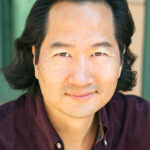
Rahi Chun
Creator: Somatic Sexual Wholeness
Rahi is fascinated by the intersection of sexuality, psychology, spirituality and their authentic embodiment. Based in Los Angeles, he is an avid traveler and loves exploring cultures, practices of embodiment, and healing modalities around the world.
